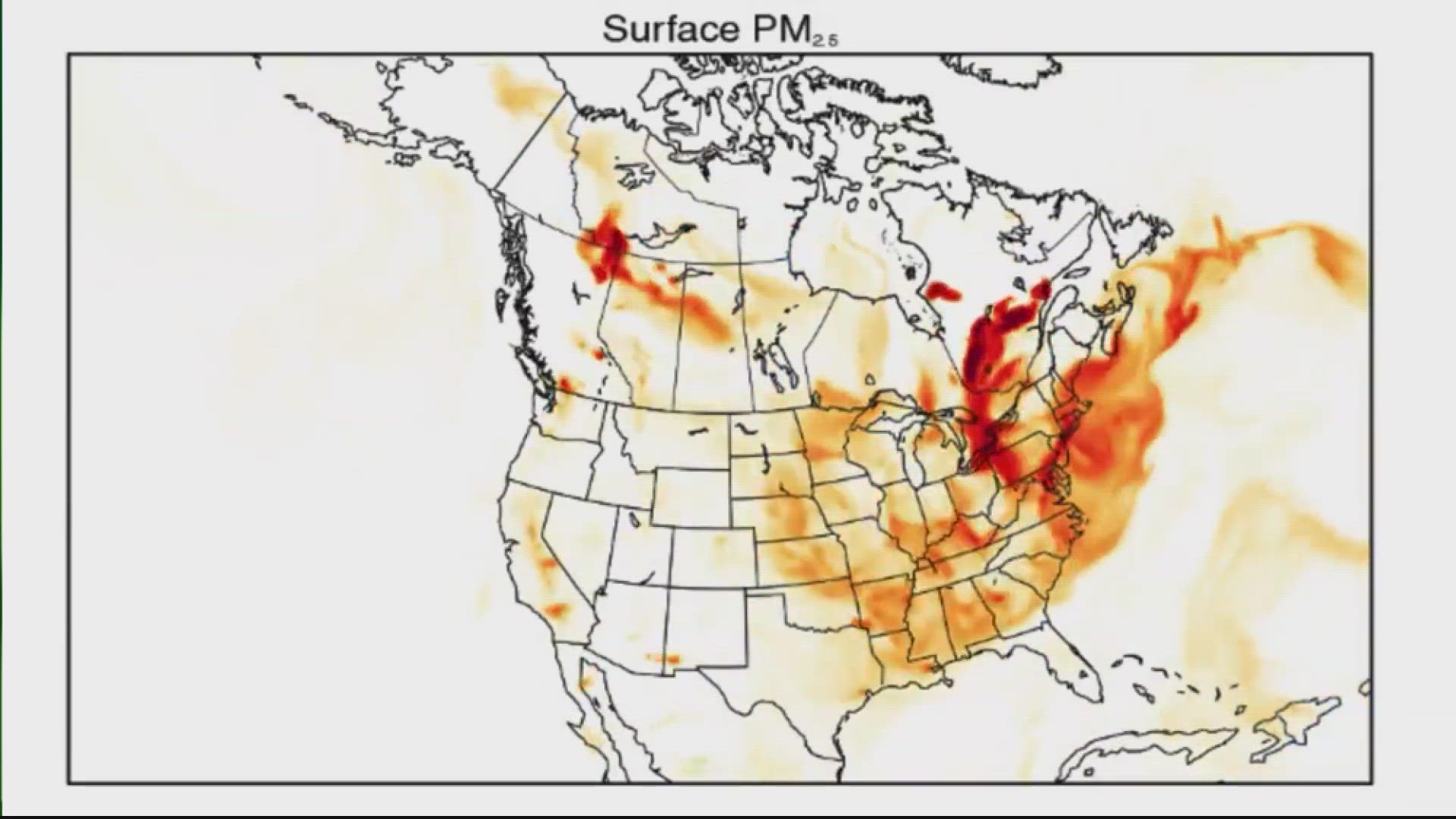WASHINGTON — Have you been wondering if that cough is allergies, a cold or due to the poor air quality that is plaguing millions right now? You're not alone.
As smoke from Canadian wildfires continues to sweep the East Coast of the United States, many are feeling the health impacts that come with wildfire smoke exposure.
According to the Environmental Protection Agency (EPA), wildfire smoke is a complex mixture of particle pollution that can threaten people's health from short and long-term exposure.
"Even in healthy people, exposures to fine particles can potentially lead to transient reductions in lung function, and pulmonary inflammation," the EPA's website says. "Particle pollution may also affect the body’s ability to remove inhaled foreign materials, such as viruses and bacteria, from the lungs."
SHORT-TERM EXPOSURE SYMPTOMS
The EPA considers short-term exposure to be "over a few days."
Irritation of the eyes and respiratory tract
Respiratory symptoms
- Coughing
- Phlegm
- Wheezing
- Difficulty breathing
Respiratory effects
- Bronchitis
- Reduced lung function
- Increased risk of asthma exacerbation and aggravation of other lung diseases
- Increased risk of emergency room visits and hospital admissions
Cardiovascular effects
- Heart failure
- Heart attack
- Stroke
- Increased risk of emergency room visits and hospital admissions
Increased risk of premature death
Click here for more information on how wildfire smoke could impact your health.

